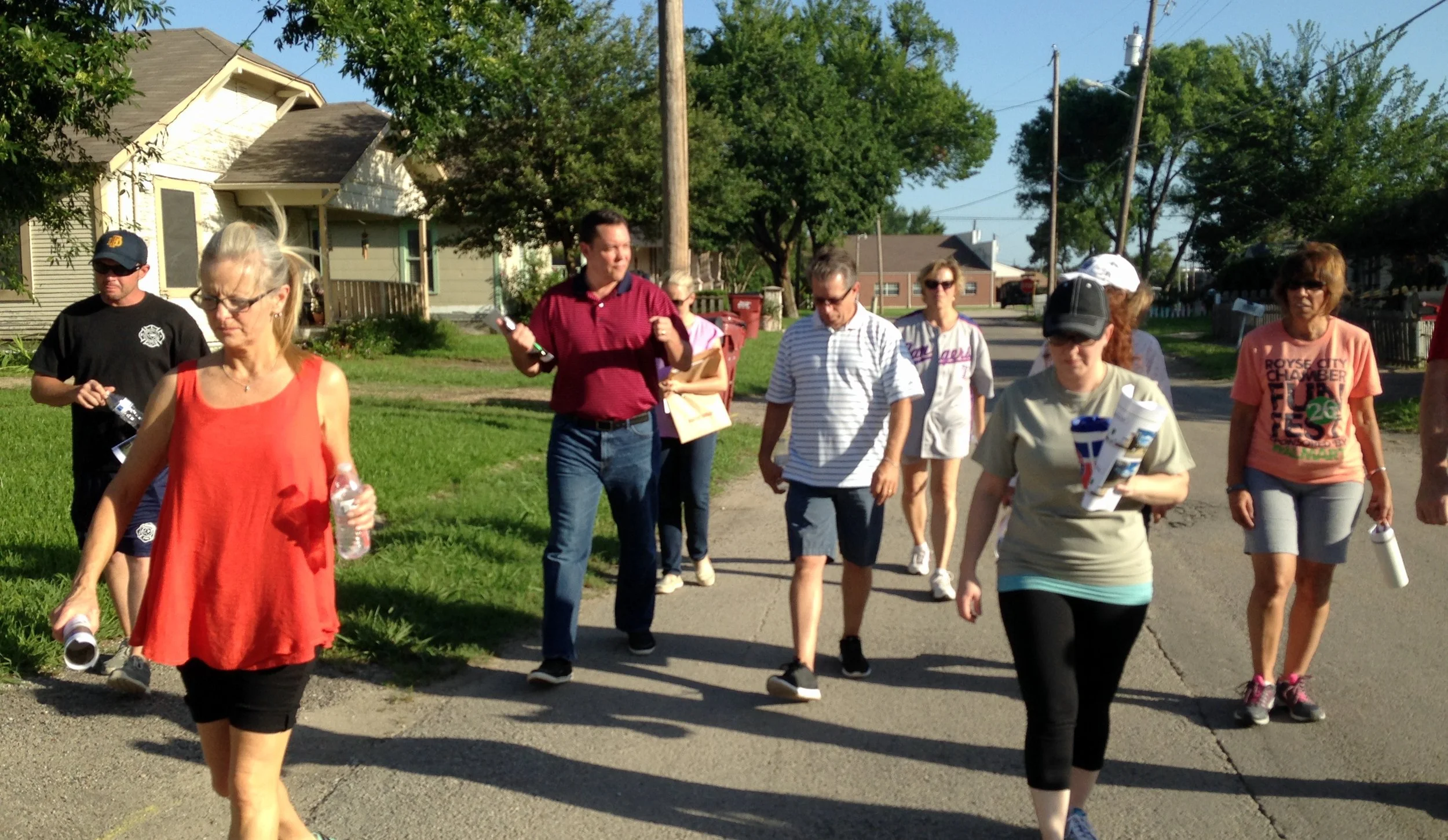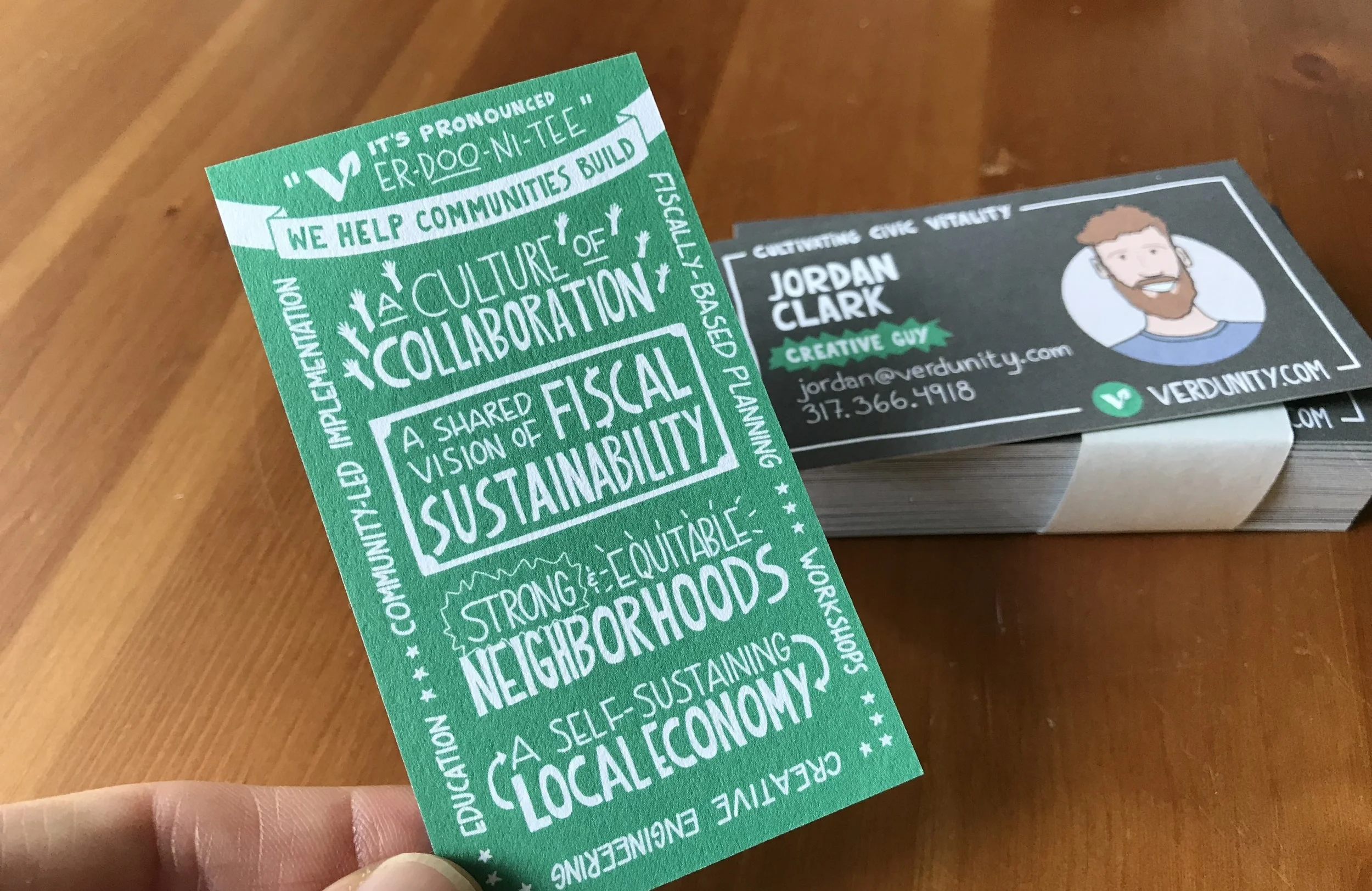Verdunity (pronounced vur-doo-ni-tee) recently began our eighth year in business as a community planning, engineering, and engagement firm. If you’re in Texas and follow Strong Towns, the small developer/incremental development movement, or participate in CNU you may know us. However, it’s likely we’re meeting for the first time. One of our clients recently described us as “one of the most impactful consultants out there that you’ve probably never heard of.” We’ve enjoyed flying under the radar for a while, but now we hope to share what we’re learning and creating with a broader audience. We took a step toward that goal by launching the Cultivating Strong Towns workshops one year ago. Now, I’m excited to announce the official launch of our new Go Cultivate! blog and podcast!
We’ve tried a lot, accomplished a lot, and learned a lot in our seven years. We strive to continue pushing boundaries in our work and ourselves. Whether you’re a long-time follower of Verdunity or just learning about our work for the first time, I think you’ll find our upcoming content relevant, thought-provoking, and entertaining.
To kick things off, here’s a bit more about our crew, our journey, and how we’re repositioning ourselves to better serve community leaders who want to make their city, town, or neighborhood stronger.
Our ‘Envisioned Future’ and Moving Beyond Status Quo
VERDUNITY is not your traditional planning or engineering firm. Everything we do focuses on cultivating civic vitality in communities and enhancing quality of life for current and future generations. Our ultimate aim is to help cities improve fiscal, social, and environmental resilience by building flexible, human-scale places incrementally with resources they have on hand. We believe our current city structure is failing, and that America’s approach to building cities and neighborhoods must change—immediately. We have committed to leading this change through our work and our lives. Because of the work we do, we’re confident that individuals, families, and communities will be better positioned to survive and thrive in the future.
Working toward this vision has been quite the challenge. Our home base (Texas) is ground zero for suburban sprawl, auto-oriented development, and the “who can pay the most” incentive-based economic development bonanza. Look around and you will find that the majority of our current architecture, engineering, and planning culture continues to sell expensive, complex solutions that cities can’t afford and that citizens struggle to understand. Most engineers still advocate for more roads, more lanes, and bigger infrastructure projects. Home builders and large developers continue lobbying for more single family housing which inevitably leads to big box retail that wastes valuable land for parking and financing mechanisms like Municipal Utility Districts (MUDs) that exacerbate the illusion of wealth. All while cities throughout the U.S. are facing significant financial, social, and environmental challenges. Some of the most pressing challenges include an increasing gap between available revenue and funding to pay for basic services and infrastructure, inadequate mobility systems, and the need for a diverse mix of housing and neighborhood types and price points.
Most of the general public is not aware of these challenges—or at least not enough to support the necessary changes to get back on a sustainable path. Poor communication with residents generates apathy, frustration, and a contentious culture that makes it difficult to have positive discussions. Many community leaders we’ve spoken with recognize the issues, but don’t understand how to move past the status quo and implement practices that can close their funding gap, steward natural resources, and create a culture of collaboration where citizens, businesses, city staff, and elected officials work together to incrementally improve the community. Finally, every community has citizens, businesses, and (often) philanthropic organizations who have time, talent, and resources to contribute, but many don’t know how best to engage.
Cultivating Change
Change starts with increasing exposure and education opportunities. Once you are introduced to these challenges, you can begin to think differently. I would not be as passionate about these issues had I not been given the opportunity to move from engineering into planning and experience the evolution of American cities of all types, sizes, and ages. If you’re interested, Jordan and I discuss my “a-ha moment” and personal evolution from concrete, roadway lovin’ engineer to placemaker in this podcast episode.
There are plenty of great ideas and approaches already taking shape that we can learn from. The advocacy group Strong Towns has influenced my personal journey as well as our company’s. Chuck Marohn and his crew continue to lead the way in sharing content and introducing people to the issues and exciting things happening all over the country. The Congress for the New Urbanism (CNU) and the Incremental Development Alliance are also doing great work to expand the conversation and drive transformation. We’ll be featuring conversations with Chuck, Monte Anderson, John Anderson and other leaders from these groups on early episodes of podcast so you can learn from them as well.
Discovering these ideas is just the first step. The next step is discussing it with others in your profession, region, community and neighborhood. We launched our Cultivating Strong Towns workshops last fall to bring people and perspectives together to dive deeper into the issues. In these workshops, we share proven and emerging strategies and empower people to initiate change in their communities. The workshops have taken us from Dallas to Lubbock to San Marcos in Texas; and to places as far and diverse as West Palm Beach, FL, Indianapolis, IN, and Shreveport, LA. We will feature sponsors and participants from past workshops on upcoming podcast episodes, including: City Commissioner Paula Ryan from (WPB), Joanna Taft from Harrison Center for the Arts (Indy), Big Car Collaborative founder Jim Walker (Indy), Lubbock (TX) Planning Director AJ Fawver, and Bastrop (TX) City Manager Lynda Humble. As with everything we do, the workshops have been an incremental process. We’ve tried new things at each one, received great feedback, and will continue to improve the format, content, and experience as we go forward.
Our work has evolved over the years. Early on, we focused on civil engineering for site development and street reconstruction projects while advocating aggressively for fiscally-based planning, human scale development, and green infrastructure. Our education efforts led to more planning work, including: a county wide open space master plan emphasizing integration of green infrastructure, public spaces, and trails; an award-winning Comprehensive Plan; some code writing; and ongoing Strong Towns consulting work with our friends in the small but very forward-thinking community of Fate, TX.
Today, our core services have evolved to a balance of workshops, fiscal impact analysis, resource-conscious planning and engineering, and site development. All our work emphasizes citizen engagement, fiscal sustainability, resource stewardship, and prioritizes people and place over cars. We’ll highlight aspects of our project work in upcoming posts, starting with some fiscal impact modeling we’re doing to help city leaders to better understand the revenue and cost impacts of different development patterns, quantify their infrastructure funding deficits, and prioritize strategies to close the gap. We advise cities to stop building new stuff that is not financially sustainable, prioritize maintenance and cultivate self-sustaining local economies by investing in local businesses and entrepreneurs instead of trying to buy jobs, companies and new residents.
If you work with us you can expect we’ll help your city cultivate civic vitality by doing the math, prioritizing incremental community-led implementation, and building a resilient local economy. We push engineers to prioritize people, place, and the environment over cars and the status quo (and sometimes we do the design work ourselves). We challenge planners to draft comprehensive plans that prioritize fiscal, environmental, and social resilience and consider what citizens are willing and able to pay for. Finally, we encourage communities to embrace a bottom-up, citizen led implementation framework that strings together small projects to incrementally improve neighborhoods and quality of life over time. Put simply, we want cities to invest in what they’ve got, get more done with existing resources, and cultivate a culture of collaboration—so that local communities can be a source for stability in an increasingly complex and changing world.
Sharing our challenges, not just the successes
I always enjoy hearing from other company leaders about their journeys and I especially admire those who are willing to share their struggles, mistakes, and lessons learned. I hadn’t really thought about sharing my own experiences until recently, when several colleagues suggested that I had knowledge and experiences that others could benefit from. I realized that my story, like many people’s, includes a host of failures and successes I’ve learned from over my 25-year career. Successes and failures that might help a wide range of people regardless of profession or industry.
In upcoming posts, I’ll share my thoughts on the future of planning, engineering and development, as well as things I’ve learned or am reading about related to building a business, leading teams, time management, and communication. In addition to my thoughts on the future of planning, engineering and development, I’ll share things I’ve learned or am reading about related to building a business, leading teams, time management, and communication in future posts and podcasts. My colleagues will be doing the same. I hope sharing more about our company’s purpose, the challenges we encounter, the tools we use, and the projects we’re working on will help those with similar goals make our lives, homes, neighborhoods and communities more healthy, vibrant, and resilient.
Introducing (almost) our new online community
Most importantly though, we want to grow a network of community builders and provide a place for us all to share our experiences and work through this journey together. We’ve discovered a new tool called Mighty Networks that we think is the perfect platform. If you’re interested in being a member of a network of purpose-driven community builders who are serious about making positive change, hop on over here to let us know you want to join the conversation. We'll be making the network live in 2019. We’ll be using this network to host webinars and live Q&A chats, organize local meetups, and publish online courses.
To our longtime friends and clients, thank you for being a critical part of building the foundation for our company. And to those of you who we’re just meeting, welcome to the VERDUNITY Community! I look forward to sharing the next steps of our journey with you. I encourage you and hope to help you become a change agent in your community. GO CULTIVATE!





